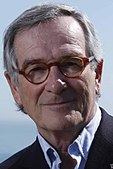Barcelona City Council election, 2011
|
|
|||||||||||||||||||||||||||||||||||||||||||||||||||||||||||||||||||||||||||
|---|---|---|---|---|---|---|---|---|---|---|---|---|---|---|---|---|---|---|---|---|---|---|---|---|---|---|---|---|---|---|---|---|---|---|---|---|---|---|---|---|---|---|---|---|---|---|---|---|---|---|---|---|---|---|---|---|---|---|---|---|---|---|---|---|---|---|---|---|---|---|---|---|---|---|---|
|
|||||||||||||||||||||||||||||||||||||||||||||||||||||||||||||||||||||||||||
|
All 41 seats in the City Council of Barcelona 21 seats needed for a majority |
|||||||||||||||||||||||||||||||||||||||||||||||||||||||||||||||||||||||||||
| Registered | 1,163,594 |
||||||||||||||||||||||||||||||||||||||||||||||||||||||||||||||||||||||||||
| Turnout | 616,537 (53.0%) |
||||||||||||||||||||||||||||||||||||||||||||||||||||||||||||||||||||||||||
|
|||||||||||||||||||||||||||||||||||||||||||||||||||||||||||||||||||||||||||
|
|||||||||||||||||||||||||||||||||||||||||||||||||||||||||||||||||||||||||||
The 2011 Barcelona City Council election, also the 2011 Barcelona municipal election, was held on Sunday, 22 May 2011, to elect the 9th City Council of the municipality of Barcelona. All 41 seats in the City Council were up for election. The election was held simultaneously with regional elections in thirteen autonomous communities and local elections all throughout Spain.
The City Council of Barcelona (Catalan: Ajuntament de Barcelona, Spanish: Ayuntamiento de Barcelona) was the top-tier administrative and governing body of the municipality of Barcelona, composed of the mayor, the government council and the elected plenary assembly. Voting for the local assembly was on the basis of universal suffrage, which comprised all nationals over eighteen, registered and residing in the municipality of Barcelona and in full enjoyment of their political rights, as well as resident non-national European citizens and those whose country of origin allowed Spanish nationals to vote in their own elections by virtue of a treaty.
Local councillors were elected using the D'Hondt method and a closed list proportional representation, with a threshold of 5 percent of valid votes—which included blank ballots—being applied in each local council. Parties not reaching the threshold were not taken into consideration for seat distribution. Councillors were allocated to municipal councils based on the following scale:
...
Wikipedia




